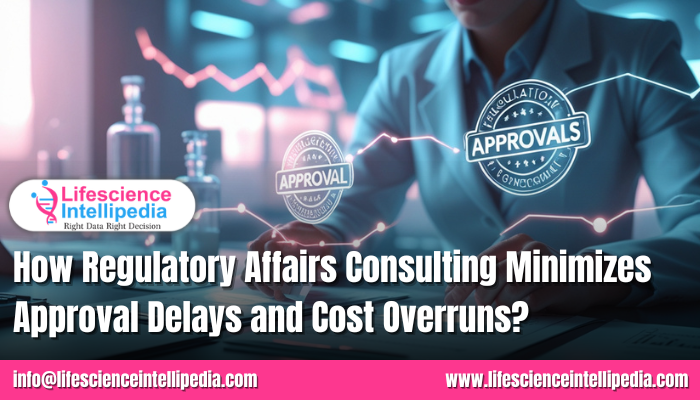
Bringing a drug to market isn’t a science problem—it’s a systems problem. Regulators don’t care how groundbreaking your data is if the paperwork’s sloppy. Miss a detail, and you’re looking at months of delay, runaway costs, or a hard stop.
Here’s the thing: the right guidance flips the game. This isn’t theory—it’s a field manual. Call it Regulatory Affairs Consulting, regulatory strategy, or just having someone who knows the traps before you step in them.
In the next few minutes, you’ll see why regulatory planning is non-negotiable. More importantly, you’ll see how the right partners cut wasted effort, protect your budget, and keep your submission out of purgatory and on the path to approval.
Core Roles of Regulatory Affairs Consulting
Think of regulatory affairs consulting as your shortcut to avoiding the bureaucratic black hole. Here’s where the magic happens:
- Gap Analysis vs Authority Requirements: Instead of guessing, consultants benchmark your dossier against what regulators actually demand. No fluff. Just a clear map of what’s missing before the FDA or EMA finds it.
- Strategy Building (CTD/eCTD Alignment, Comparability Strategy): They’re your architect. Consultants take messy data piles and shape them into CTD or eCTD structures regulators can glide through. For biosimilars, they tighten your comparability package so it doesn’t crumble under scrutiny.
- Preparing for Scientific Advice / Authority Meetings: Picture this: you walk into a regulator meeting calm, clear, and confident. Why? Because consultants scripted your talking points, prepped the evidence, and anticipated the curveballs.
- Risk Detection & Mitigation (CMC Gaps, Stability, Site Changes): Red flags don’t wait. Skilled consultants catch weak CMC data, shaky stability studies, or manufacturing shifts—long before they explode into delays or rejections.
Regulatory affairs consultants don’t just smooth the process—they de-risk it. Think less firefighting, more fast-tracking.
Key Benefits of Regulatory Affairs Consulting
Regulatory affairs consulting is not just about paperwork—it’s about saving time, money, and a ton of frustration. Here’s the breakdown:
| Benefit | Impact | Example Metric |
| Faster review cycles | Submissions move smoother with fewer gaps | 20=30% shorter review times reported in industry surveys |
| Fewer resubmission and queries | Avoid back-and-forth with regulators | Reduction in deficiency letters and rework costs |
| Predictable timelines and budgets | Projects run closer to plan | Up to 25% fewer cost overruns in complex filings |
| Scalable multi-region support | Same dossier adapted for FDA, EMA, CDSCO etc. | One master file = multiple approvals with tweaks |
In simple terms: less delay, less waste, more approvals. Consultants keep the process clean and predictable, which means your team can focus on science—not paperwork chaos.
How Lifescience Intellipedia Adds Value?
Biosimilar submissions are a minefield. One missed requirement and months of progress vanish. Here’s how Lifescience Intellipedia keeps you out of trouble and moving forward:
1. Regulatory Intelligence That Actually Matters
Regulations shift fast. FDA, EMA, CDSCO, ASEAN—all different, all evolving. LSIP tracks these changes in real time so you don’t get blindsided. That means fewer surprises, less rework, and approvals that don’t drag on forever.
2. Data + API + Supplier Insights, All in One Place
Finding reliable supplier or API data shouldn’t feel like detective work. With Chemxpert, you see what’s available, who’s trustworthy, and where the risks are. That clarity keeps your development grounded in reality—and ahead of competitors.
3. One-Stop Integration (Not Ten Different Vendors)
Juggling multiple providers slows everything down. LSIP bundles regulatory intel, market data, and consulting into one streamlined workflow. No silos, no finger-pointing—just a clean roadmap from development to approval.
At the end of the day, Lifescience Intellipedia isn’t about working harder. It’s about working smarter—saving time, cutting errors, and giving your biosimilar the best shot at success.
Conclusion
Let’s keep it simple. Regulatory submissions can either move smoothly or turn into a mess of delays, rejections, and wasted budgets. The difference often comes down to one thing: how well your dossier strategy is built. Regulatory affairs consulting isn’t just paperwork help—it’s what transforms risky submissions into robust, approval-ready packages.
The smart move? Don’t wait until problems pop up. Map your dossier strategy early, budget for expert consulting, and make regulatory planning part of your launch playbook from day one.
At Lifescience Intellipedia, we make that easier. From regulatory intelligence and Chemxpert data to hands-on consulting, our team helps you close gaps before regulators open them.
Want to see where your submission stands? Start with a dossier gap assessment or consulting audit from our experts. It’s the fastest way to reduce risk and build confidence before you file.







